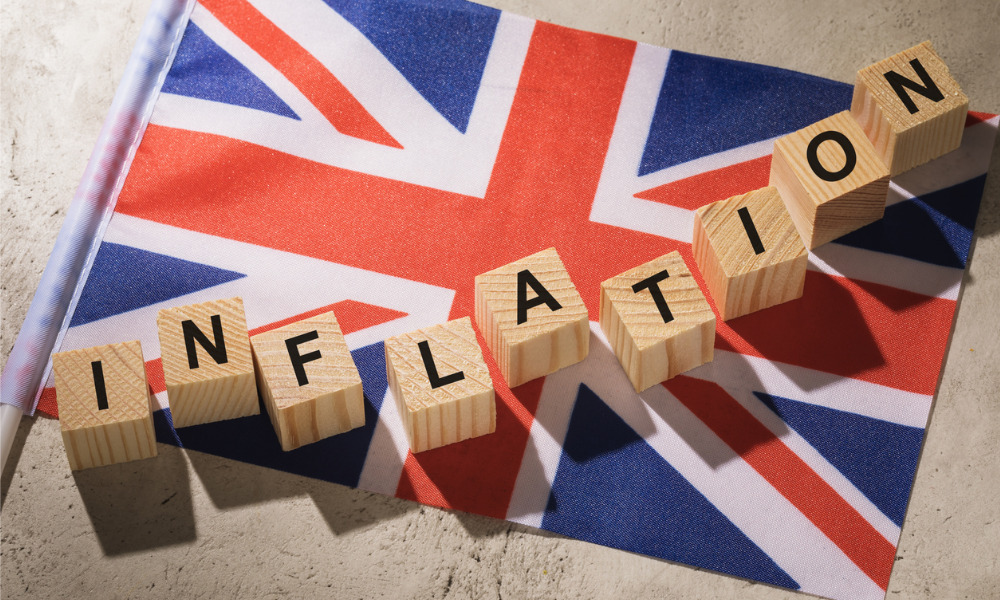"Dizzying levels of inflation have become the norm in 2022"

After slightly falling last month, UK inflation returned to double digits and to its four-decade high – at the same level as it was in July.
The Consumer Prices Index (CPI) rose by 10.1% annually in September, up from 9.9% in August, official government data released on Wednesday showed. On a monthly basis, CPI rose by 0.5% in September 2022, compared with a rise of 0.3% in September 2021.
According to the Office for National Statistics (ONS), rising food prices contributed the most to the upward change in CPI annual inflation rates between August and September 2022, while the continued fall in the price of motor fuels made the largest, partially offsetting, downward contribution to the change in the inflation rates.
These latest figures will certainly impact the Bank of England’s (BoE) decision to further hike interest rates in November. The base rate is already at its highest in nearly 14 years after a 0.50% hike to 2.25% was implemented last month. BoE governor Andrew Bailey has stated that the central bank would not hesitate to raise interest rates, if needed, to meet its 2% inflation target.
Read more: Global rate increases press on relentlessly.
Reacting to the latest inflation numbers, Paul McGerrigan, chief executive at fintech broker Loan.co.uk, said the publication of September’s figures is “a sobering reminder of the breadth of challenge the UK faces.”
“High energy bills driven by the war in Ukraine continue to be the main contributor to remarkable inflation conditions, McGerrigan noted. “While the government’s initiatives to control the cost of energy until April 2023 will restrict further large increases, the retreat to more normal levels still looks a distant dream.
“The mortgage mayhem of the last fortnight, driven by the mini budget debacle, coupled with a potentially record-breaking interest rate rise on November 3, will put significant pressure on inflation including housing costs, with increases inevitable in the coming months.
Simon Webb, managing director of capital markets and finance at later life lender LiveMore, agreed that one of the main reasons for high inflation is the surge in energy prices.
“Government efforts to help curb energy bills with an energy price cap of £2,500 for the next two years no longer stands as the new Chancellor Jeremy Hunt is only guaranteeing the cap until next April,” Webb pointed out. “If government support for energy bills disappears, it is likely to result in higher inflation, as well as negatively impacting on many people’s finances and living standards through 2023.”
Read more: Thousands could miss out on mortgages due to rising energy costs – research.
McGerrigan added that as soaring inflation would impact millions of households, mortgage borrowers need to assess their position continually and act where needed. He also stressed that the role of mortgage brokers and financial advisers is now more important than ever.
For Jatin Ondhia, chief executive at investment platform Shojin, the “dizzying levels of inflation have become the norm in 2022” and investors and financial markets will likely not react as sharply to the latest figures as they may have done previously.
“What’s more, inflationary pressures have also been somewhat overshadowed of late due to the political and economic turbulence that have characterised Liz Truss’ first month as prime minister,” Ondhia said.
“That said, the combination of sustained high inflation and rising interest rates makes for a challenging macroeconomic environment, with many investors naturally left wondering how best to manage the situation.”
Ondhia said that investors must take the time to reassess their inflation toolbox and consider which assets are likely to help cushion their portfolios against further disruption.
“Maintaining a well-diversified portfolio and ensuring investments remain aligned with long-term goals will be key in navigating the challenges,” he added.



